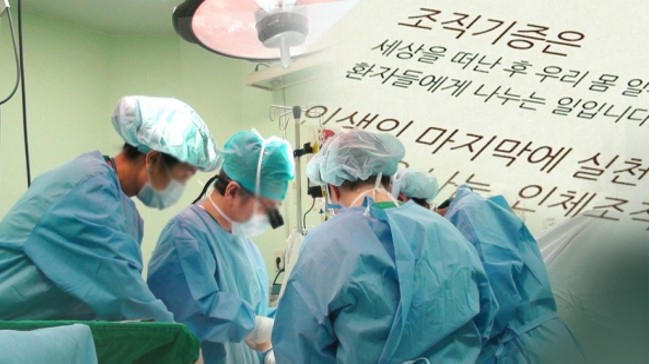Nearly 140,000 register as organ donors in 2023, up 18% on-year
By Shin Ji-hyePublished : Jan. 23, 2024 - 14:20

Nearly 140,000 South Koreans expressed their intention to donate their body parts and organs after death last year, up 18 percent from the previous year, according to government data released Tuesday.
Data from the Ministry of Health and Welfare showed that new registrations for the donations of organs, tissue and eyes reached 139,090 in 2023. New donor registrations recorded 115,517 in 2020, 158,940 in 2021 and 117,584 in 2022.
In South Korea, the procurement of organs and tissues is restricted to brain-dead individuals who have previously given consent for donation, while cornea donations can be made by those who have passed away, also contingent on their prior permission.
In 2022, 7.88 percent of the brain-dead patients donated their body parts here, significantly lower compared to 44.5 percent in the US, 46.03 percent in Spain and 21.08 percent in the UK, according to the ministry.
An official in charge of organ donation in the ministry said Korea has a low rate of organ donation due to a “discomfort with bodily disfigurement” that is rooted in Confucian beliefs, as well as a “vague fear” of organ harvests.
Individuals aged 16 and older can register for organ donations through the National Institute of Organ, Tissue, and Blood Management website. Registrations are also taken at public health centers or medical facilities. Organ donation registration is not legally binding so it can be canceled if one changes their mind.
Even if you register for organ donations, consent from at least one family member is still required when an organ is transplanted. Without the consent, organ donations cannot proceed.
Therefore, it is important for individuals who intend to donate to inform a family member of this decision in advance, according to the National Institute of Organ, Tissue, and Blood Management.



















![[Today’s K-pop] Treasure to publish magazine for debut anniversary](http://res.heraldm.com/phpwas/restmb_idxmake.php?idx=642&simg=/content/image/2024/07/26/20240726050551_0.jpg&u=)